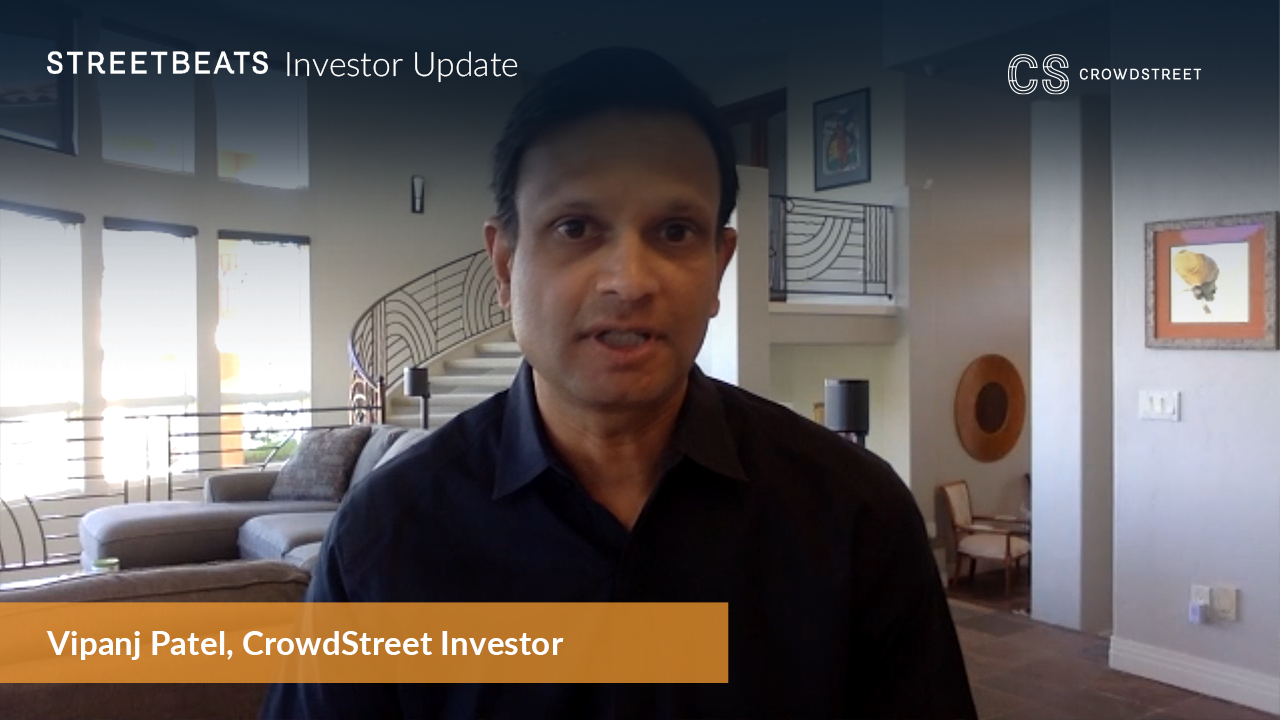
Crowd Street's Brent Hieggelke is joined by Vipanj Patel, a Crowd Street investor, to discuss how COVID-19 has changed Crowd Street's deal flow, why he thinks about building his portfolio versus just investing in an individual property, and why Class-B multifamily is a staple asset class for him.